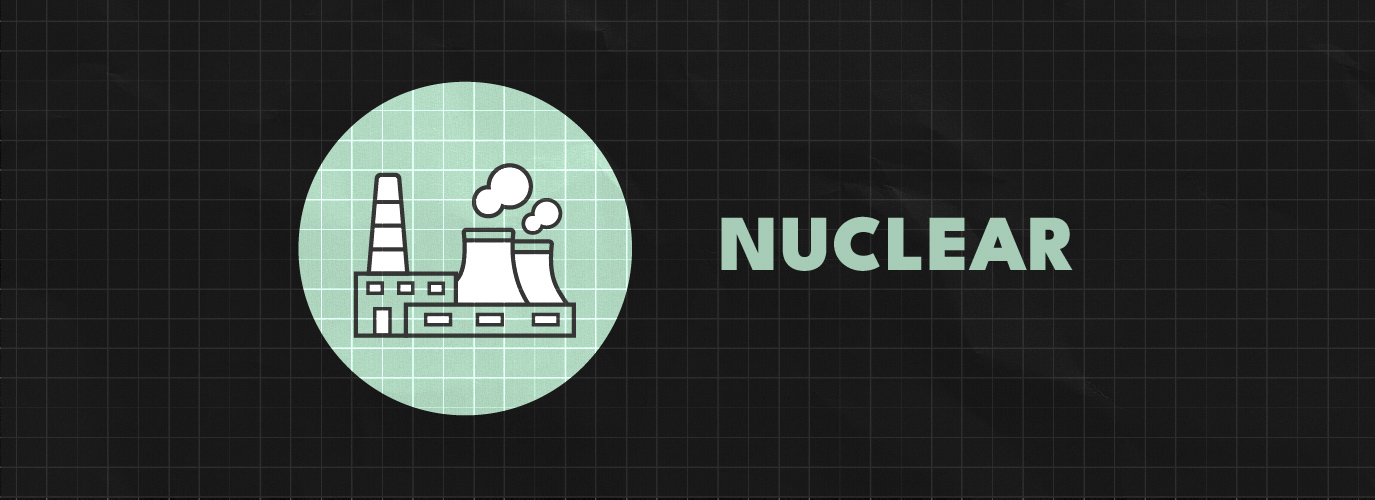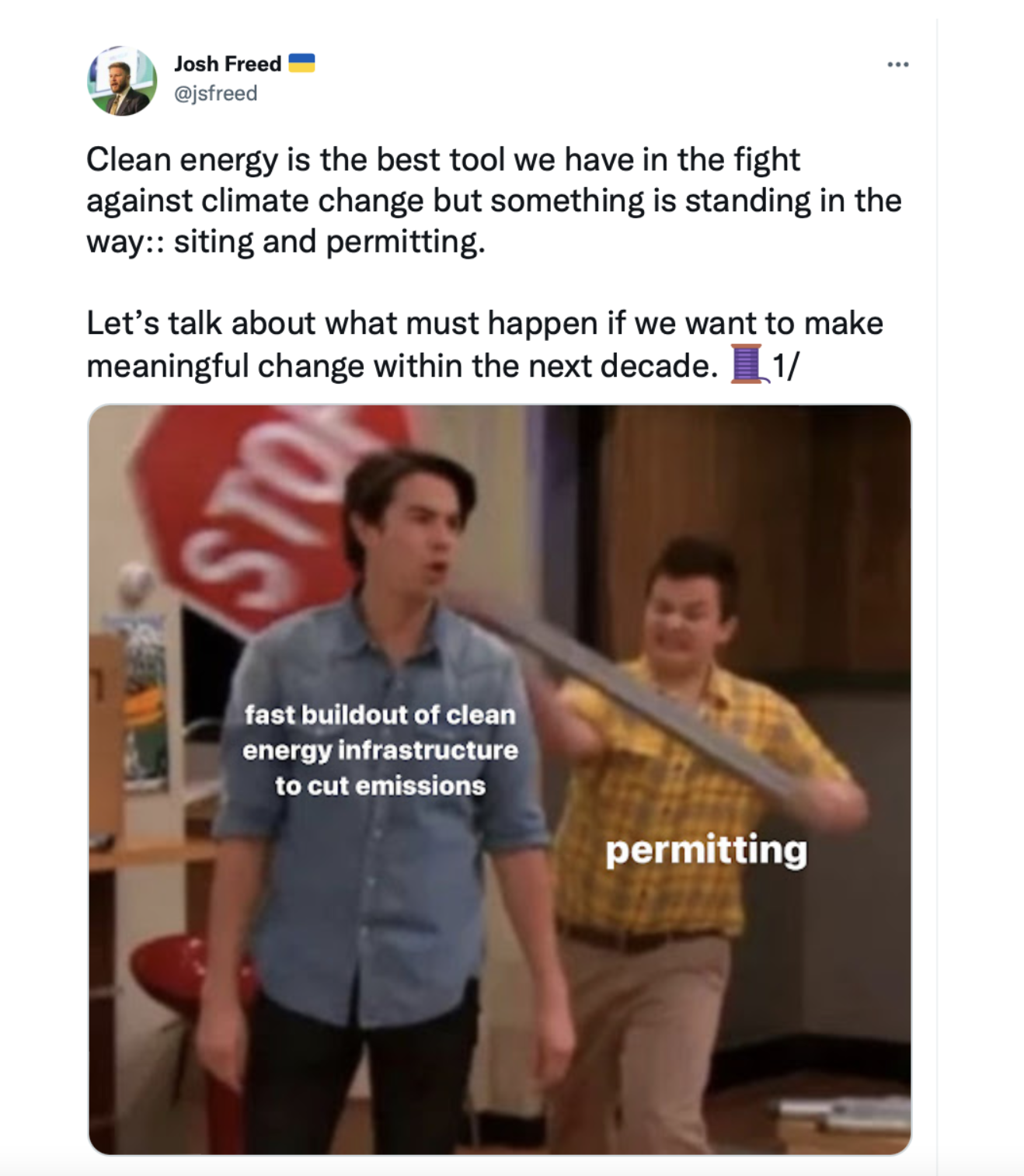On the Grid: Domestic and Global Economic Impacts 10/14/22

Congress may be in recess but things are not slowing down in the clean energy policy world.
The Internal Revenue Service (IRS) is making moves on policy implementation, having released six requests for information (RFI) along with the Treasury Department on a number of the climate and clean energy tax incentives packed in the Inflation Reduction Act (IRA). This includes tax credits for clean energy manufacturing, renewable and nuclear electricity, and electric vehicle purchasing.
While RFIs are common for many agencies, it’s rare to see one emerge from the IRS and the Treasury, let alone six. With a quick 30-day turnaround on comments, the Biden Administration is moving as quickly as possible to provide the guidance we need to unlock investment and deploy clean energy. The deadline for comments is fast approaching—November 4th—so if you have any thoughts on how the investment and production tax credits should be shaped, let the IRS know!
This week’s newsletter will cover some important clean energy announcements and highlight the impactful work emerging out of Third Way’s Climate and Energy team!

Decarbonizing our economy will create millions of jobs. Period. Full stop. The Decarb America Research Initiative, a Third Way, Bipartisan Policy Center, and Clean Air Task Force joint modeling partnership, estimates that a clean energy economy will generate over 2 million jobs, economy-wide by 2050. But where will those jobs be? Everywhere!
In a Third Way memo, Isabelle Chan broke down the potential employment gains state-by-state. Here’s a brief rundown:
- Every single state will experience positive job growth under a net-zero economy.
- All kinds of clean energy jobs are on the horizon and offer opportunities for Americans with different skill sets to take advantage of, from engineering to construction and manufacturing to agriculture.
- The Midwest region is estimated to see more than 146,000 clean energy jobs by 2030 and nearly 238,000 by 2050.
- The clean energy transition is for everyone. A quarter of all clean energy job growth in 2050 will be in top fossil fuel producing states.
You can check out Axios’ Andrew Freedman’s synthesis of the data as well as our larger report on the employment impacts of a decarbonized economy.

In 2021, the global aviation sector emitted 720 megatonnes of carbon into the atmosphere. That’s more than what all of Canada emitted in 2020. While transportation is our heaviest polluting sector, aviation is particularly carbon-intensive and difficult to decarbonize because of the few alternative fuel options that are commercially available.
We held a virtual event this week to discuss different abatement strategies that will put us on the path to net-zero aviation emissions by 2050. Alex Laska, Third Way’s Senior Policy Advisor for Transportation, led a discussion with Assistant Secretary for Aviation and International Affairs Annie Petsonk on how the Biden Administration is coordinating national and international efforts to reach 100% sustainable flights. Oriana Pawlyk, POLITICO’s Aviation reporter, facilitated a panel discussion with industry leaders from Gevo Inc. and Delta Airlines and Third Way’s John Hebert to discuss how the private sector can leverage public investment and incentives to catalyze markets for sustainable aviation fuel (SAF). You can watch the entire discussion here and read John’s blog on how the Inflation Reduction Act is fueling more sustainable aviation.
Here are some other recent BIG announcements in the world of clean transportation:
- Honda and LG Energy are investing a total of $4.4 billion into Ohio auto-manufacturing, building a new plant and retooling three others to produce electric vehicle batteries.
- Stellantis, an international auto conglomerate, has signed an agreement with GME Resources to secure nickel and cobalt sulfate, two raw materials essential for the electric vehicle battery supply chain.
- GM is investing $69 million and taking an equity stake in Queensland Pacific Metals to secure nickel and cobalt for electric vehicle battery production.

A nuclear renaissance is on the horizon. Why are we so confident? One extremely recent example: Today, Georgia Power announced that the fuel load process has begun for the Vogtle Unit 3 reactor core, one of two new AP-1000 reactors at the Plant Vogtle Nuclear Power Plant in Waynesboro, Georgia. During this process, trained nuclear technicians and operations will transfer and install 157 fuel assemblies–a group of fuel rods–in the Vogtle Unit 3 reactor core.
Why is this a BIG deal? Having received nearly $12 billion in loan guarantees from the Department of Energy’s Loan Program Office, Vogtle’s new reactors, Unit 3 & 4, are now the first new reactors to be built in the United States in nearly three decades. This is an achievement that has put thousands of Americans to work, will support hundreds of permanent, family-sustaining jobs in Georgia, and will provide reliable and safe clean energy for decades. More importantly, this project showcases the importance of federal investment, and patience, in large-scale clean energy projects.
With Vogtle’s Unit 3 set to come online in early 2023, and Unit 4 to follow a couple of months later, the US nuclear industry is re-emerging. But after 30 years, it’s clear that the US still needs to build back the muscle, workforce, and supply chains to compete for our share of over $500 billion in investments the world is expected to make in small modular reactors (SMRs) over the coming decades. Projects like Vogtle and advanced nuclear projects on the horizon (see the groundbreaking of X-energy’s TRISO-X fuel facility earlier this week) are what will help us do that.
In the background of Georgia Power’s announcement, Brookfield Renewable Partners, an investment firm, and Cameco, one of the world’s largest uranium suppliers, announced a $7.9 billion deal to purchase US nuclear company Westinghouse. The acquisition is yet another sign of increasing optimism in the growth of nuclear energy around the world.
Westinghouse has a long history of nuclear innovation and produces the technology that is essential for nearly half of the world’s operating nuclear power plants, including Vogtle Unit 3 and 4. Their strong track record, coupled with Brookfield’s expertise in energy markets and Cameco’s uranium supply and conversation capacity, will be a major step forward as we seek to reduce reliance on Russia in our nuclear supply chains.

- Walter Russell Mead, offers an opinion in the Wall Street Journal, on the difficult decisions world leaders, including President Biden, have had to make in the realm of climate diplomacy as nations face increasingly dangerous energy shortages.
- Lauren Leffer, in Gizmodo, takes a hit at corporate greenwashing in the aviation industry. Highlighting a new report from Carbon Market Watch, Leffer outlines how the emissions offset programs of major airlines are, unfortunately, mostly a marketing ploy.
- Shayle Kann, host of the Catalyst podcast series, talks with Sam Jaffe, vice president of battery solutions at E Source, on the role of the Inflation Reduction Act in bolstering electric vehicle (EV) supply chains, particularly the EV battery industry. P.S. Curious about how else the Biden Administration is supporting EVs? Read Alex Laska’s blog!

The clean energy policy conversation is expanding…and so are we! The Climate and Energy Program is looking for people with talent and a passion for climate solutions to fill two new roles on our team. If you’ve got anyone in your mental Rolodex who you think might be a fit, please send them our way. And if you wanted to circulate these job postings more broadly with your networks, we wouldn’t mind that either!
Deputy Director: This person will directly supervise 3-4 policy experts working in fields that could include clean energy innovation, industrial decarbonization, and carbon management. They’ll guide these direct reports in developing policy and advocacy strategies that ensure US energy is clean, reliable, affordable, and secure. This person will contribute to program-wide strategy and represent Third Way in public events, coalitions, and high-level meetings. Our ideal candidate will have 5+ years of energy policy experience and experience managing staff.
Policy Advisor for Innovation: This team member will take the lead on our cross-cutting efforts in clean energy innovation. That includes working on implementation of demonstration, financing, and other DOE programs; developing recommendations to advance energy innovation across federal agencies; and building support for RD&D funding priorities. Our ideal candidate will have 3+ years of experience in a relevant field. Job responsibilities can be scaled for candidates with exceptional qualifications.
Senior Policy Advisor for Nuclear Exports: We’re seeking a candidate who can conduct analysis and develop and advocate for policies that accelerate the safe exporting of advanced civilian nuclear power plants, particularly from the United States to Europe, as a key tool to expand clean, secure, affordable, reliable energy resources on both sides of the Atlantic. Issues covered include export financing, non-proliferation, national and nuclear security, and economic opportunities for both the US and our partners. The ideal candidate will have 5+ years of experience in nuclear exports, trade, or another relevant field.
Multimedia Designer: As part of the communications team, the Multimedia Designer will manage the program's visual brand and amplify the program's initiatives by delivering compelling designs and data visualizations for reports, events, social media, videos, and presentations. The ideal candidate will have 3+ years of experience in graphic or multimedia design.
Executive Coordinator: This individual will support Climate and Energy Program directors with administrative and logistical tasks and occasionally with communications, light research, proofreading, and coordinating product distribution. The ideal candidate would have at least 1 year of work experience, including relevant internships.

The Climate and Energy Program’s Senior Vice President, Josh Freed, outlines a strong case for permitting reform.


